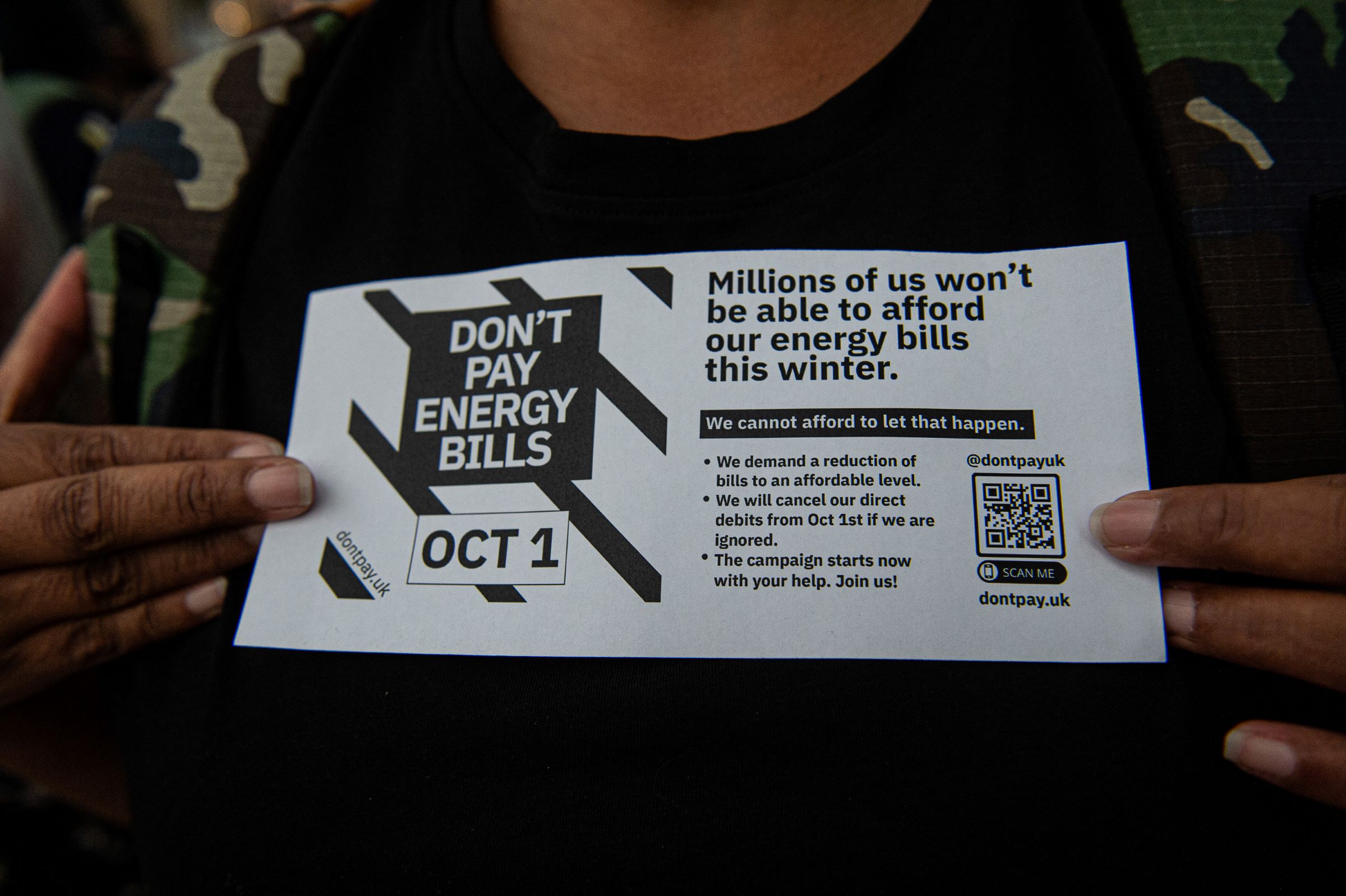
Bring your dream home to life with expert advice, how to guides and design inspiration. Sign up for our newsletter and get two free tickets to a Homebuilding & Renovating Show near you.
You are now subscribed
Your newsletter sign-up was successful
Britain's energy regulator may increase its price cap on energy bills to reduce the risk of suppliers going bust as customer energy debt spirals.
Ofgem’s proposal drew condemnation from consumer campaigners as UK households struggle to afford energy price rises.
Energy debt has reached a record £2.6 billion pounds due to a combination of higher wholesale energy prices and cost of living pressures across the board.
The energy price cap
The energy price cap was introduced by the government in 2019 to limit how much firms can charge consumers for their energy to ensure households on default tariffs pay fair gas and electricity prices.
The scheme was replaced last year by the introduction of the Energy Price Guarantee, which capped bills at £2,500, as energy bills dropped it became redundant and the price cap will now be used to cap energy bills once again.
The current energy price cap was set by Ofgem on 1 October 2023 and is £1,923. This reflects the fall in wholesale energy prices.
Price cap predicted to rise to £1,996
An analysis by the regulator showed consumer energy bills could increase by up to £17 per year, or around £1.50 per month, on average.
Bring your dream home to life with expert advice, how to guides and design inspiration. Sign up for our newsletter and get two free tickets to a Homebuilding & Renovating Show near you.
However, Consultancy firm Cornwall Insight predicts bills could increase to £1,996, which would largely arise from increases in wholesale energy prices.
Dr Craig Lowrey, principal consultant at the group, said: "While the rise is small, it shows we cannot just assume prices will continue their fall and eventually reach pre-pandemic levels.
"Policies need to be put in place to deal with the possible situation that high energy prices have become the new normal."
Why is the cap predicted to rise?
Some energy firms have gone out of business or left the market due to unrecoverable debt, so Ofgem held a consultation to adjust the price cap.
The analysis weighed the risk of customers facing even higher costs against suppliers going out of business, as seen during the 2021 energy crisis, when around 30 suppliers went out of business, Ofgem said.
"We know that households across the country are struggling with wider cost of living challenges, including energy, so any decision to add costs to the price cap is not one we take lightly," said Tim Jarvis, Ofgem's director general for markets.
Tensions around rising energy prices is only set to heighten if the energy price cap rises as expected after previous price cap announcements on October 1 prompted protests outside Ofgem's headquarters with protestors promising to boycott paying their energy bills to force Ofgem to lower the price cap.
This is after households struggling to pay the bills claimed available government energy grants and other energy saving tips failed to sufficiently reduce their bills.
One protestor, Tracy Baldwin, 52, a carer from Yorkshire, stated: “The price hikes are astronomical. There’s going to be deaths from the vulnerable, the disabled, the elderly. Ofgem are not doing anything to tackle the problem. When people start to die it’s going to be nothing short of corporate manslaughter.”

'The idea that energy bills should go up due to bad debt is dangerous'
Simon Francis, the group coordinator of the End Fuel Poverty Coalition, said the idea that energy bills should go up due to bad debt is “dangerous", adding energy suppliers made more than £2 billion in profits in the first half of 2023.
He said: "Rather than pass on more increases to energy bills, the government needs to work with energy firms to introduce a ‘help to repay’ scheme to help get Britain's households back onto an even keel.”
A spokesperson for the Department for Energy and Net Zero said energy prices easing from October would help lessen "the burden for hardworking families".
"Last winter the government provided unprecedented support to families, spending around £40 billion to cover around half a typical household's energy bill, and we continue to provide support to families with the Energy Price Guarantee remaining in place through to April 2024 - as well as support offered to the most vulnerable through the Warm Homes Discount."
Sam is based in Coventry and has been a news reporter for nearly 20 years. His work has featured in the Mirror, The Sun, MailOnline, the Independent, and news outlets throughout the world. As a copywriter, he has written for clients as diverse as Saint-Gobain, Michelin, Halfords Autocentre, Great British Heating, and Irwin Industrial Tools. During the pandemic, he converted a van into a mini-camper and is currently planning to convert his shed into an office and Star Wars shrine.

